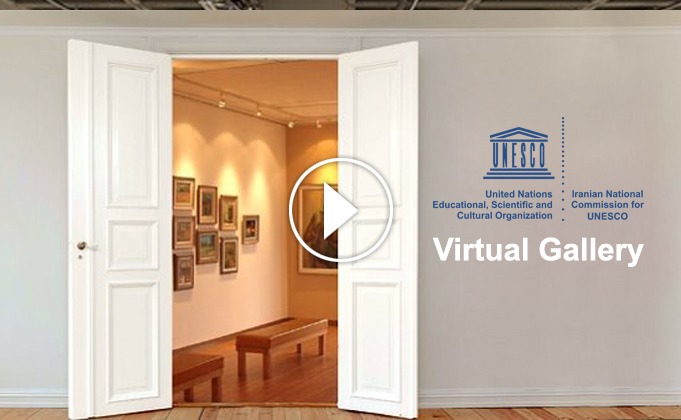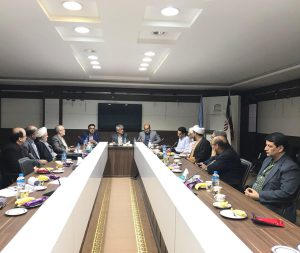
UNESCO Category II Centres
- Home
- »
- UNESCO Category II Centres
Date of Establishment: 2017
Host institute: Academy of Medical Sciences
Chair-holder: Dr. Ali Akbar Valayati
The specific objectives of this Chair are to:
- Carry out, jointly with partners, research on the practice and science of traditional medicine which will contribute to the compilation of a reference tool in the form of an encyclopedia;
- Support the enhancement of capacities in the field of practice and science of traditional medicine notably through short-term training targeting students, academics, researchers, professionals and visiting professorships. In this endeavor, pay due attention to ensuring gender equality;
- Foster and sustain the exchange of faculty and students;
- Enhance networking and the sharing of knowledge and good practices notably through the production and wide dissemination of publications; the organization of national, regional and international meetings; and the creation of a dedicated website; and,
- Cooperate closely with existing UNESCO Chairs and with UNESCO on relevant programmes and activities.
Address: Academy of Medical Sciences, entrance to the National Library and Archives of I.R. Iran, Shahid Haghani Highway,Vanak Sq. , Tehran-Iran
Tel:+9821 88645510
Email: www.ams.ac.ir
Isfahan Regional Center for Technology Incubators and Science Park Development was established in Isfahan in May 2010 according to an agreement between Islamic Republic of Iran and UNESCO. Isfahan Science and Technology Town (ISTT) is the host for this regional center. IRIS has been mandated to address and resolve the problems currently limiting the success of Science Parks and Technology Incubators in developing countries. The initial focus of the center, as Category II center of UNESCO, is on facilitating the integration of developmental approach into science, technology and innovation, developing technology transfer, organizing capacity building, providing policy advice, facilitating the exchange of experience and best practices, and conducting research and problem solving in Science Parks and Technology Incubators development.
Date of Establishment: 2017
Host institute: Payame Noor University
Chair-holder: Dr. Seyed Mohammad Shobeiri
The specific objectives are to:
- Provide environmental education so as to empower learners (students, teachers, administrators) to be creative and responsible global citizens;
- Involve experienced NGOs in students’ environmental education and,
- Cooperate closely with existing UNESCO Chairs and with UNESCO on relevant programmes and activities.
Address: Payame Noor University, Nakhl St., Artesh Boulevard, Minicity, Tehran-Iran
Tel: +9821 84234237
Fax:+9821 88911772
Email: ucee@pnu.ac.ir
Website: ucee.pnu.ac.ir, ucee.ir
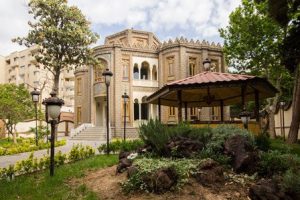
Iranian National Institute for oceanography and Atmospheric Science (INIOAS) proposed the establishment of the “Regional Education and Research Center on Oceanography for West Asia” to the Iranian National Commission for UNESCO in 2010. The proposal was sent to Intergovernmental Oceanographic Commission (IOC-UNESCO) and a mission was undertaken by the representative of IOC to evaluate the feasibility of creating this centre.
The results of the feasibility study were presented to the IOC Assembly, which endorsed the proposal by adopting decision IOC-XXVII/Dec.5.1.2.1 at its 27th session (Paris, 26 June-5 July 2013).
Then, the Executive Board, at its 192nd session, welcomed the proposal of establishing this centre under the auspices of UNESCO and recommended (192 EX/Decision 15, Part IX) that the General Conference, at its 37th session, 5-20 November 2013, approve the proposal to grant to the said centre the status of a category 2 centre under the auspices of UNESCO.
The final approval was made by the 37th UNESCO General Conference in November 2013 (37 C/18 Part XVII).
The Regional Centre on Urban Water Management (RCUWM), under the auspices of UNESCO, as a category II Centre was officially inaugurated in 2002, in light of the sixth phase of the International Hydrological Programme (IHP) with the aim of transferring applicable scientific and experimental knowledge and to increase know-how and capacities in all cases and dimensions of Urban Water Management (UWM) in order to promote sustainable development and to undertake relevant activities to enhance human welfare within the region States.
Since its establishment, from Feb. 2002, 32 workshops, 6 conferences, 4 seminars, 7 training courses and 7 exhibitions have been organized by the Centre and its GB members. The list of activities has been included in the Centres Website.
In compliance with the seventh and eighth phase of the IHP, RCUWM has tried to promote its activities and achievements in close cooperation with its governing board member states and organizations as well as other category II Centres and Initiatives particularly the International Drought Initiative (IDI) at the national, regional and international levels.
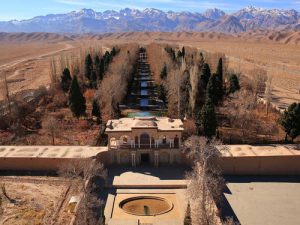 We are a UNESCO water related center which fulfills its mission under the auspices of this organization. The Government of the Islamic Republic of Iran formally submitted to UNESCO a detailed proposal for the establishment of the International Center on Qanats and Historic Hydraulic Structures in Yazd, Iran under the auspices of UNESCO, which finally met with the 32nd session of the General Conference of UNESCO’s approval. According to this approval, an agreement on the establishment of the center was signed by the director general of UNESCO and the Iran’s minister of energy on March 26th 2005 We are a UNESCO water related center which fulfills its mission under the auspices of this organization. The Government of the Islamic Republic of Iran formally submitted to UNESCO a detailed proposal for the establishment of the International Center on Qanats and Historic Hydraulic Structures in Yazd, Iran under the auspices of UNESCO, which finally met with the agreement on the establishment of the center was signed by the director general of UNESCO and the Iran’s minister of energy on March 26th 2005.
www.icqhs.org
We are a UNESCO water related center which fulfills its mission under the auspices of this organization. The Government of the Islamic Republic of Iran formally submitted to UNESCO a detailed proposal for the establishment of the International Center on Qanats and Historic Hydraulic Structures in Yazd, Iran under the auspices of UNESCO, which finally met with the 32nd session of the General Conference of UNESCO’s approval. According to this approval, an agreement on the establishment of the center was signed by the director general of UNESCO and the Iran’s minister of energy on March 26th 2005 We are a UNESCO water related center which fulfills its mission under the auspices of this organization. The Government of the Islamic Republic of Iran formally submitted to UNESCO a detailed proposal for the establishment of the International Center on Qanats and Historic Hydraulic Structures in Yazd, Iran under the auspices of UNESCO, which finally met with the agreement on the establishment of the center was signed by the director general of UNESCO and the Iran’s minister of energy on March 26th 2005.
www.icqhs.org The First Virtual International Exhibition and Conference on Calligraphy along the Silk Road Countries
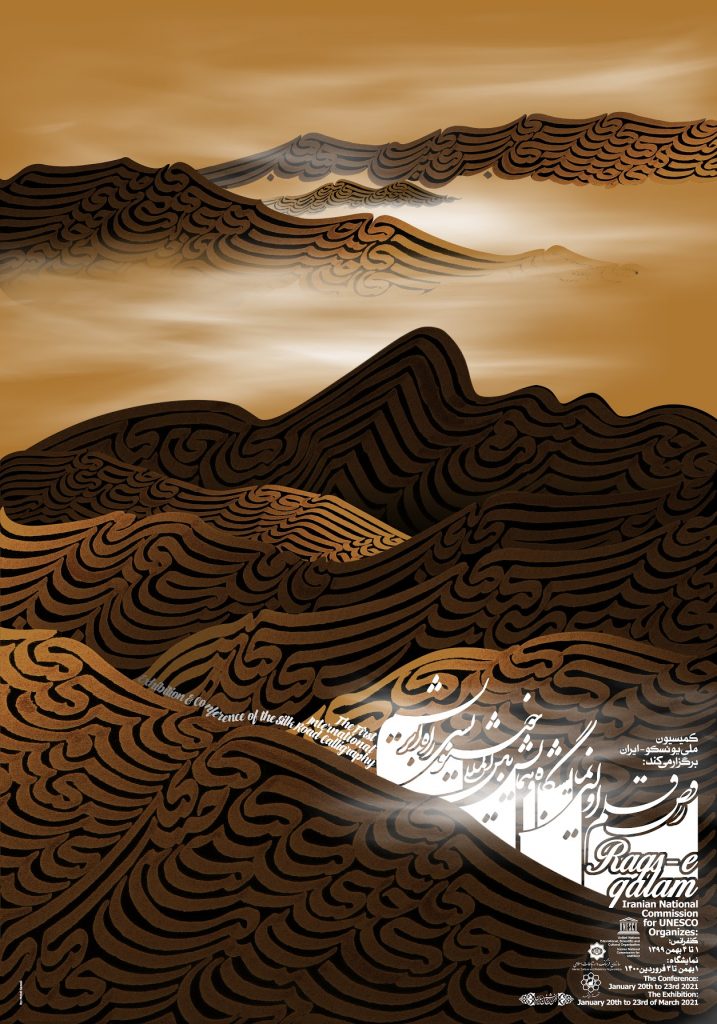
VIRTUAL GALLERY OF IRANIAN NATIONAL COMMISSION FOR UNESCO
